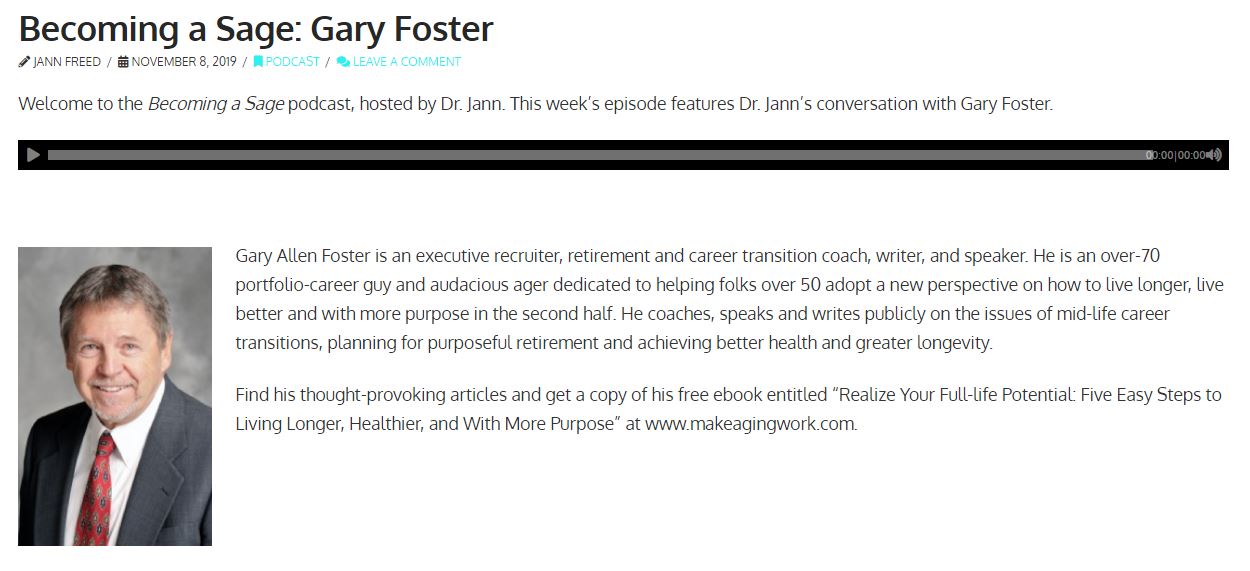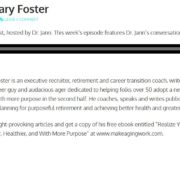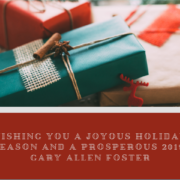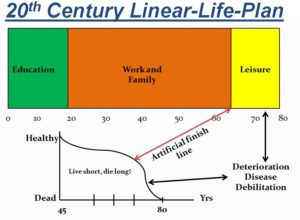
How did you react when you received your AARP card just before your fiftieth birthday?
Were you:
- Surprised and shocked.
- Flattered
- Excited
- Ambivalent
- Pissed
Surprised? We probably don’t want to know how much they know about us.
Flattered? Just a thought – you might want to raise the bar.
Excited? You love those weekly Bed Bath and Beyond 20% discount coupons also, don’t you?
Ambivalent? Good choice.
Pissed? Good –I’m not alone.
In one trip to the mailbox, I was slammed, culturally and without my permission, into an insulting, miscast category entitled “elderly”.
I refuse to contribute to this insurance-company-in-disguise.
Yes, it defies all logic that I would pass up a 12% discount on ParkRideFly USA airport parking. Or a 15% discount on Philip Lifeline medical alert service or save on an eye exam at Lenscrafters.
But, I’m sorry. I just haven’t gotten over the insult that arrived twenty-eight years ago with that AARP letter.
I guess that kinda makes me seem like one of those grumpy, crass, hard-headed ol’ farts I swore I’d never become.
I’m working on fixing that.


So it was that when I got a mere one chapter into Chip Conley’s new book “Wisdom at Work” (reference my 10/21/19 article) that I got affirmation that my resistance to that premature elderly tag will have served me well.
If you’ve been hanging around my weekly diatribes for a while, you’ve no doubt detected that I seem to have a new hero every week or so. Well, this week – and I think for a good while longer – it’s Chip Conley.
I wrote two weeks ago about his Modern Elder Academy, a “boutique resort for midlife learning and reflection” and his coining of a new cultural portal he labeled “middlescence”.
My intrigue with his inventiveness motivated me to Amazon Prime his book and dig in.
So glad I did.
I didn’t need to go past Chapter 1 to know that Conley’s is a voice and message that needs to be heard – across generations. He is saying so much more eloquently and authoritatively what I’ve been waltzing and bumbling around with for most of my two years with this blog.
At the heart is the message that it’s time to:
“liberate the ‘elder’ from the word ‘elderly’. ‘Elderly’ refers solely to years lived on the planet. ‘Elder’ refers to what one has done with those years. Many people age without synthesizing wisdom from their experience. But elders reflect on what they’ve learned and incorporate it into the legacy they offer younger generations. The elderly are older and often dependent upon society and, yet, separated from the young.”
Conley reminds us that the average age of someone moving into a nursing home is eighty-one vs sixty-five in the 1950s and that this leaves a lot of people not yet elderly but as elders.
He encourages us to “take back the term elder” and own it as a modern definition of someone with great wisdom especially at a time we need it.
I loved this choice of words:
“Let’s make it a ‘hood’ that’s not scary. Just as a child stares into adulthood with intrigue, wouldn’t it be miraculous if an adult peered into elderhood with excitement?”
Count for me how many, amongst your family, friends, acquaintances, co-workers, that you think will “peer into elderhood with excitement”. I’m guessing you didn’t need the fingers on both hands.
While you are at it, count up the number of millennials and GenX’ers you know (if you know any at all) that are excited about the same thing i.e. about us being anything more than irrelevant “elderlies.” Even fewer fingers, right?
Conley brings a different but refreshing, evidence-based perspective on how and why this all can change; on how generativity can close the gap; on how we need those digi-head millenials as much as they need us wisdom keepers.
It’s time for you and me to become more intentional about our “wisdom worker status” and to redefine our third-age as one of “mature idealism.”
Consider Conley’s perspective on this:
“For many of us, the baseball game of our career will likely go into extra innings. So maybe it’s time to get excited about the fact that most sporting matches get more interesting in the last half or quarter. By the same token, theatergoers sit on the edge of their seat during the last act of a play when everything finally starts to makes sense. And marathon runners get an endorphin high as they reach the final miles of their event. Could it be that life gets more interesting, not less, closer to the end?”
I’ll wrap with these two powerful quotes from the first chapter of Conley’s book.
“If you can cause maturity to become aspirational again, you’ve changed the world”. Ken Dychtwald, Age Wave
“In spite of illness, in spite even of the arch-enemy, sorrow, one can remain alive long past the usual date of disintegration if one is unafraid of change, insatiable in intellectual curiosity, interested in big things, and happy in small ways.” Edith Wharton
Anybody up for joining this “elder revolution” and become Modern Elders? There’s a lot of room.








 Hello, I’m Gary Allen Foster, executive recruiter, retirement and career transition coach, writer, and speaker.
Hello, I’m Gary Allen Foster, executive recruiter, retirement and career transition coach, writer, and speaker. The move to “entrepreneurship” was exciting and exhilarating with its freedom and control – for about six months! Then reality hit!
The move to “entrepreneurship” was exciting and exhilarating with its freedom and control – for about six months! Then reality hit! None of this may be important to you. But I’m guessing if you’ve read this far, something is resonating. My thing is perhaps a quixotic mission of helping folks over 50 adopt a new perspective on how to finish strong, to finish with purpose, to live longer, live better and live with purpose, to be willing to reinvent themselves. In other words, to Make Aging Work and Live Big and Age Little.
None of this may be important to you. But I’m guessing if you’ve read this far, something is resonating. My thing is perhaps a quixotic mission of helping folks over 50 adopt a new perspective on how to finish strong, to finish with purpose, to live longer, live better and live with purpose, to be willing to reinvent themselves. In other words, to Make Aging Work and Live Big and Age Little. Shockingly, more than 50% of Boomers are financially unprepared to take traditional retirement. For those that can, 70% enter retirement with absolutely no non-financial retirement plan.
Shockingly, more than 50% of Boomers are financially unprepared to take traditional retirement. For those that can, 70% enter retirement with absolutely no non-financial retirement plan.





 Now 87, Shatner looks 20-years younger and is living like his hair is on fire (yes, he still has plenty) – writing books; doing a country-western album, a blues album, and a Christmas album; touring internationally; producing, directing and performing on NYC Broadway stage; speaking.
Now 87, Shatner looks 20-years younger and is living like his hair is on fire (yes, he still has plenty) – writing books; doing a country-western album, a blues album, and a Christmas album; touring internationally; producing, directing and performing on NYC Broadway stage; speaking.










 To give you an idea of this man’s talent (and in hopes of adding you to his fan club)
To give you an idea of this man’s talent (and in hopes of adding you to his fan club) 
